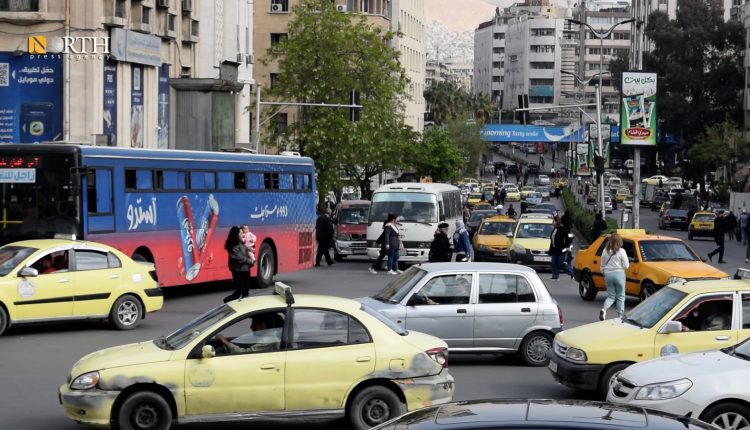Fourteen years of devastating conflict have left Syria’s economy in ruins. Once-functioning oil and gas fields, electricity networks, agricultural lands, and transportation infrastructure lie in disrepair. Meanwhile, the Syrian pound has plummeted to historic lows, and the Central Bank’s foreign currency reserves are virtually depleted. As the country enters a fragile transitional phase following the fall of the Assad regime, Syrians are turning their focus to economic revival—but what should come first?
Lifting Sanctions: A National Priority
For many Syrians, lifting Western sanctions tops the list of priorities. “Removing the sanctions helps the country as a whole—not just individuals,” said Maher Hashish, a resident of Damascus. His view is echoed by Osama Ibrahim, also from Damascus, who believes sanctions relief is more valuable than short-term humanitarian aid. “Assistance may come once, but lifting sanctions can have long-lasting benefits for Syrian society,” he explained.
Electrical engineer Mahmoud Asoumeh agrees. He blames sanctions for the shutdown of factories and the mass emigration of young professionals. “Removing these restrictions would enable Syria to become an industrial and commercial hub,” he told North Press, warning that overreliance on aid risks entrenching economic dependency.
On March 17, Syria took part in the Brussels Donor Conference for the first time, represented by Foreign Minister Asaad al-Shaibani. The international community pledged €5.8 billion ($6.3 billion) in humanitarian assistance—a decline from previous years, largely reflecting the absence of direct U.S. financial contributions.
Aid and Investment: Not a Substitute for Sanctions Relief
Economists warn that without U.S. action to ease sanctions, even the most generous aid pledges will fall short. Experts agree that reviving Syria’s shattered economy requires reintegration into global trade and financial systems. “The process of reconstruction and economic recovery will remain painfully slow without access to international capital,” said one analyst.
Washington imposed its toughest sanctions in 2019 in an effort to punish the Assad regime. These restrictions have since become a major obstacle to funding reconstruction efforts, according to experts, even though they were never intended to target the Syrian population directly.
Expert Opinion: Targeting Sustainable Solutions
Dr. Ali Kanaan, Dean of the Faculty of Economics at the University of Damascus, described the Brussels conference as a “sign of easing tensions” and an opportunity to reposition Syria on the global economic map. He argues that attracting foreign investment and mobilizing the Syrian diaspora’s capital is the most sustainable strategy forward—one that avoids saddling the country with “unpayable debts.”
While the United States did not formally participate in the conference, Kanaan sees its tacit approval in the fact that the event was not obstructed. “Had Washington opposed the meeting, it could have stopped it,” he said. He also pointed to emerging signs in U.S. discourse suggesting a reconsideration of its sanctions policy on Syria.
However, Dr. Abdel Qader Azouz, Professor of International Relations and Head of the Economics Department at the University of Damascus, warned that partial easing of European sanctions remains insufficient. “American restrictions continue to be the most crippling,” he emphasized, particularly in terms of logistics and international banking.
Diplomatic Uncertainty and Policy Hurdles
As Syria’s new leadership seeks to rebuild state institutions and revive the economy, it faces a range of obstacles—including persuading skeptical Western powers to lift sanctions and regaining control over the country’s key oil fields. Western governments remain cautious, partly due to the past affiliations of some Syrian leaders with al-Qaeda-linked factions, despite their recent break with extremist groups.
Further complicating the diplomatic landscape, Washington formally downgraded the status of the Syrian mission at the United Nations last week. A memo delivered via the UN reclassified the delegation from that of a permanent mission of a recognized state to a mission representing a non-recognized government.
What Must Be Done Next
Observers argue that Syria’s new government must urgently undertake sweeping reforms to avoid economic collapse. These include restructuring the Central Bank, overhauling financial policy, and pursuing meaningful sanctions relief.
Without such measures, experts warn, international loans could quickly become unsustainable, and unemployment will drive further social unrest. “A nation that relies solely on aid will remain dependent,” said Asoumeh, stressing that Syrians are ready to rebuild—but they need room to breathe.
This article was translated and edited by The Syrian Observer. The Syrian Observer has not verified the content of this story. Responsibility for the information and views set out in this article lies entirely with the author.


